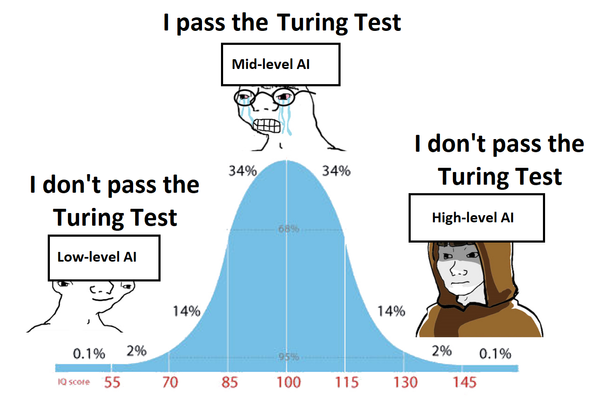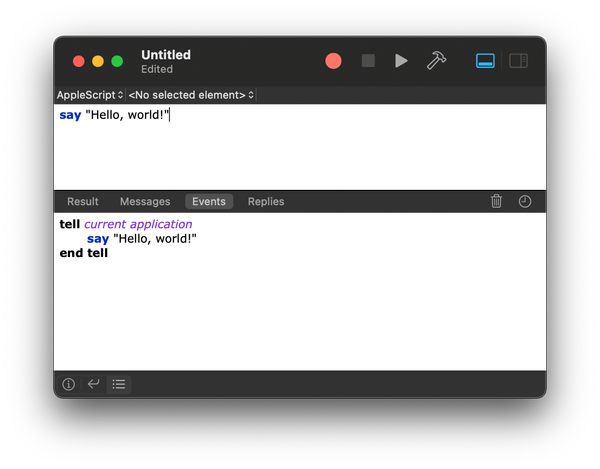Predictive Analytics in Law: Leveraging AI for Case Outcome Analysis
Predictive analytics, powered by Artificial Intelligence (AI), has gained significant traction in various industries, including the legal profession. In the legal field, predictive analytics utilises AI algorithms to analyse vast amounts of legal data and make predictions about case outcomes.

Introduction
Predictive analytics, powered by Artificial Intelligence (AI), has gained significant traction in various industries, including the legal profession. In the legal field, predictive analytics utilises AI algorithms to analyse vast amounts of legal data and make predictions about case outcomes. By leveraging historical data, machine learning and statistical modeling, predictive analytics in law offers valuable insights for legal professionals. In this article, we will explore the role of predictive analytics in law and how AI is revolutionising case outcome analysis.
The Need for Predictive Analytics in Law
Case outcome analysis is a critical aspect of legal practice. Lawyers and legal professionals need to assess the strengths and weaknesses of legal arguments, predict the likelihood of success and make informed decisions for their clients. Traditionally, case outcome analysis has relied on legal expertise and experience. However, predictive analytics offers a data-driven approach to enhance decision-making and improve the accuracy of case outcome predictions.
Leveraging AI for Case Outcome Analysis
Predictive analytics in law leverages AI technologies to analyse vast amounts of legal data and extract meaningful insights. Here are some key ways AI is revolutionising case outcome analysis:
1. Data Collection and Analysis
Predictive analytics relies on comprehensive and accurate legal data. AI algorithms can collect and analyse various types of legal information, including case law, court records, statutes, regulations and legal literature. By processing and analysing this data, AI can identify patterns, trends and correlations that may influence case outcomes.
2. Machine Learning Algorithms
Machine learning algorithms play a crucial role in predictive analytics for case outcome analysis. These algorithms can learn from historical case data, identify relevant features and build predictive models. By continuously refining their models based on new data, machine learning algorithms can improve the accuracy and reliability of case outcome predictions over time.
3. Feature Identification and Selection
Predictive analytics algorithms identify and select relevant features from legal data that may impact case outcomes. These features can include factors such as the judge's history, jurisdiction, legal arguments, case complexity and previous case outcomes. By considering these features, predictive analytics algorithms can generate insights and predictions specific to individual cases.
4. Risk Assessment and Strategy Development
Predictive analytics can assist legal professionals in assessing the risks associated with specific legal arguments or case strategies. By analysing historical data, AI algorithms can identify the factors that contribute to favorable or unfavorable outcomes. This enables lawyers to make informed decisions, develop effective legal strategies and manage client expectations.
5. Decision Support and Case Evaluation
Predictive analytics provides decision support for legal professionals by offering insights into the potential outcomes of a case. By considering various scenarios and probabilities, lawyers can evaluate the strengths and weaknesses of their arguments, anticipate potential challenges and make strategic decisions based on data-driven analysis.
Benefits of Predictive Analytics in Law
The adoption of predictive analytics in case outcome analysis offers several benefits:
1. Enhanced Decision-Making
Predictive analytics provides data-driven insights that can enhance decision-making for legal professionals. By considering historical data and relevant features, lawyers can make informed choices about legal strategies, settlement negotiations and case management.
2. Improved Efficiency and Resource Allocation
Predictive analytics can help legal professionals allocate their resources more effectively. By identifying high-risk cases or scenarios with low chances of success, lawyers can prioritise their efforts and allocate resources where they are most likely to yield positive outcomes.
3. Accurate Case Outcome Predictions
AI-powered predictive analytics algorithms continuously learn and improve their models based on new data. This enables them to generate increasingly accurate case outcome predictions over time. Legal professionals can leverage these predictions to manage client expectations and make more informed decisions.
4. Identifying Patterns and Trends
Predictive analytics algorithms can identify patterns and trends in case outcomes that may not be immediately apparent to human analysts. This can provide valuable insights into legal strategies, argument effectiveness and potential biases in the legal system.
5. Strategic Planning and Risk Mitigation
By assessing the risks associated with specific legal arguments or strategies, predictive analytics helps legal professionals develop effective plans and mitigate potential risks. This can lead to better outcomes for clients and improved risk management in legal practice.
Ethical Considerations and Limitations
While predictive analytics offers significant benefits, it is essential to consider the ethical implications and limitations:
1. Data Quality and Bias
Predictive analytics relies on accurate and representative data. Legal professionals must ensure that the data used for analysis is of high quality and does not contain biases that may influence predictions or perpetuate existing inequalities. Careful consideration should be given to the selection and handling of data to avoid biased or skewed outcomes.
2. Interpretation and Human Expertise
Predictive analytics algorithms provide insights, but human expertise and judgment are still essential. Legal professionals should interpret the predictions in the context of their legal knowledge and experience, considering factors beyond the scope of the data analysis. Legal professionals should exercise caution in relying solely on predictive analytics and continue to apply their professional judgment.
3. Privacy and Confidentiality
Legal professionals must ensure compliance with privacy regulations and maintain client confidentiality when using predictive analytics. Protecting sensitive client information and ensuring data security are critical considerations in the adoption of AI technologies. Legal professionals should work with AI vendors and implement appropriate safeguards to protect client data.
4. Limitations of Historical Data
Predictive analytics relies on historical data, which may not always reflect current legal trends or evolving societal norms. Legal professionals should be aware of the limitations of historical data and consider its relevance to the specific case at hand. They should also consider the potential impact of changes in laws, regulations, or social dynamics that may affect the accuracy of predictions.
5. Accountability and Explanation
Legal professionals should be prepared to explain and justify the use of predictive analytics in legal decision-making processes. Transparency and accountability are crucial in ensuring that AI-generated insights are used responsibly and ethically. Legal professionals should be able to articulate the limitations and potential biases of predictive analytics to clients, judges and other stakeholders.
Conclusion
Predictive analytics, powered by AI, is revolutionising case outcome analysis in the legal profession. By leveraging historical data, machine learning algorithms and statistical modeling, legal professionals can make data-driven decisions, enhance efficiency and improve client outcomes. However, ethical considerations, such as data quality, bias, privacy and accountability, must be carefully addressed. By embracing predictive analytics responsibly, legal professionals can leverage the power of AI to enhance their practice, make informed decisions and provide better outcomes for their clients. Predictive analytics, when used ethically and in conjunction with legal expertise, has the potential to transform the legal profession and improve access to justice.



